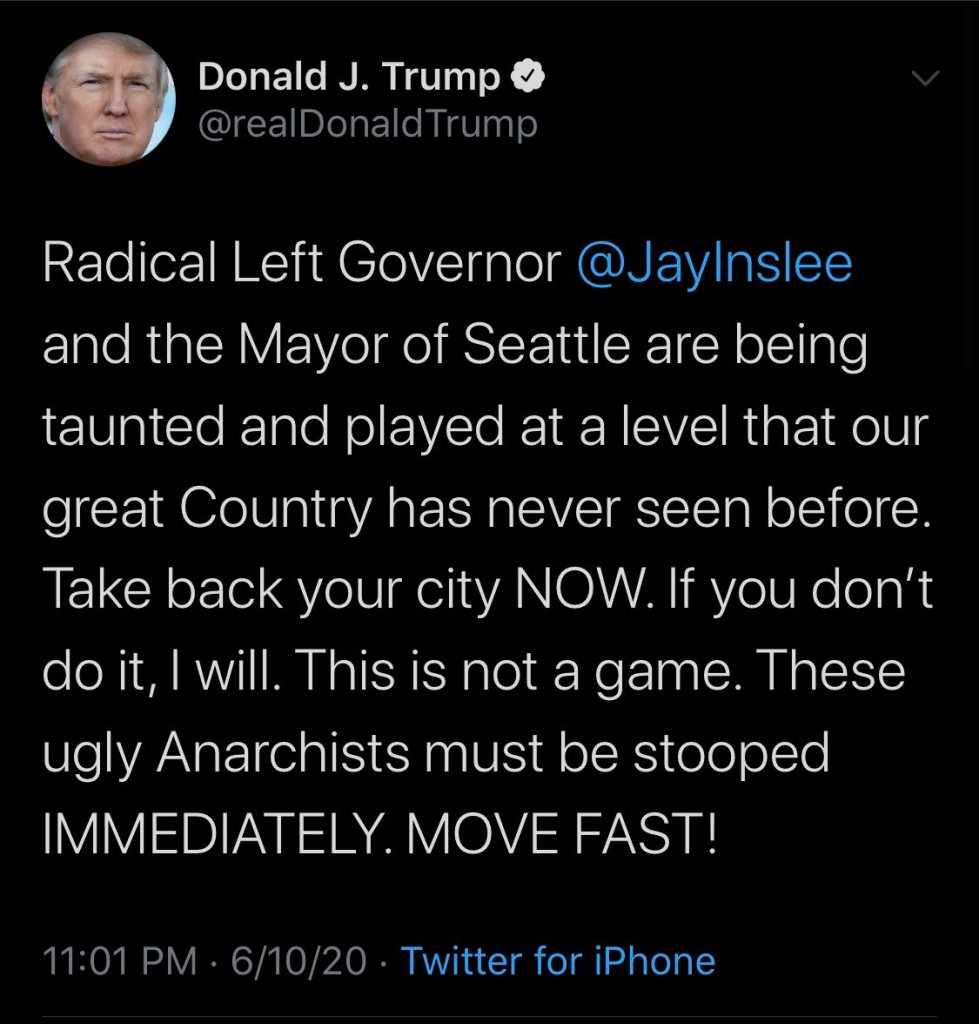New children’s novel is inspired by a political minority persecuted 120 years ago. Meanwhile, history repeats itself
June 10, 2020. President Trump tweeted a message for Seattle, that troublemaker city wedged into America’s left shoulder, whose citizens were just then busy with the Black Lives Matter protests, erecting CHOP, defying mayor Jenny Durkan, and generally taking matters into their own hands.
What did Trump have to say to the people of Seattle? “These ugly anarchists must be stooped!”

Now, anyone who knows their way around a QWERTY keyboard knows O is located right next door to P and clearly the Cheetoh in Chief meant to hit P not O. These anarchists must be stopped. Typos happen.
But let’s have some fun. What if Trump really was commanding his people to “stoop” the anarchists? The verb “stoop” means to lower one’s moral standards in order to do something reprehensible. If Trump meant what he said, if we take him at his word, at stoop…. Well, in that case our president is beseeching the American public to forcibly lower anarchists’ moral standards to make them do something reprehensible.
Goad them. Plant a false flag. Create a scapegoat. Give us an impetus for retaliation. Make the other guy look bad.
We can assume that isn’t what he meant at all.
But if he did, it wouldn’t be the first time.
September 6th,1901. A disillusioned young man calling himself an anarchist fired a bullet into the gut of President McKinley, where it lodged in his intestine, spread gangrene, and a week later took his life.
The assassination set off waves of anti-anarchist sentiment across the country. Men and women who had never met this Leon Czsolgosz fellow and were wholeheartedly against using violence to bring political change were pestered, harangued, and worse, for the crimes of a “fellow anarchist”. Newspapers fanned the flames with incendiary articles and opinion pieces. Some called for the outright murder of anarchists. Some even used the word exterminate.

McCarthyism may have been decades in the future, but in 1901 the witch-hunt for anarchists was on.
Meanwhile on Puget Sound, dozens of so-called utopias had sprung up around the turn of the century, their residents trying out a variety of egalitarian political ideas. These early experiments in communal living would prove to be short-lived, but were going strong at the time of the McKinley assassination.
Home Colony, located on a roadless peninsula in the dense, soggy, Pacific Northwest woods, just a few nautical miles west of Tacoma, was among the better-known of these utopias.
Home was less than a decade old at the time of the assassination, and had no more than a handful of residents. It was known for its radical newspaper, The Agitator, which enjoyed a worldwide circulation. Local chatter centered around the anarchists’ habit of swimming in the nude.
But the anarchists of Home were of a different flavor–not so interested in geopolitics, very interested in tending their vegetable gardens. When the renowned Emma Goldman visited, she was not impressed. “Home, Washington is where anarchists go to die,” Goldman is reported to have said. Home folks certainly had no association with the man on the other side of the country who had shot the president.
None of this mattered to the Tacoma residents who met up on that hot September night McKinley finally succumbed to his wounds, formed a league hell-bent on justice, then set out to commandeer a steamship, the Tyconda, across Commencement Bay to take their revenge on the anarchists of Home.
While the nascent justice league, many of them aged veterans of the Civil War, didn’t find their target that night, over the next decade persistent legal harassment of Home residents for various minor infractions helped put the nail in the utopian coffin.
From first to last, Home Colony existed less than 25 years. These days, Home is a blink-and-you’ll-miss-it kind of town, boasting a post office, a laundromat, and a gas station, as well as the 165-acre Penrose Point State Park.
But inspiration is everywhere. The story of the anarchists at Home inspired me to write The Octopus Under the Bridge, a middle grade novel set in the near-future, in a post peak-oil Puget Sound. In it, fourteen-year-old Jay flees violence in Tacoma for a safe haven with his grandmother in nearby Puget Sound. But after uncovering a secret that places his mom, dad, little sister, and everyone he loves at risk, Jay has no choice but to sail back home alone.
A story about family, community, and how kids feel when the world starts changing around them, The Octopus Under the Bridge is a book that kids need right now.

I grew up in New England, surrounded by historic sites, but it wasn’t until I moved to Washington State that the past started to feel real. My husband is descended from some of the first settlers on the Key Peninsula, and he helped me fall in love with local history, especially the free-thinking anarchists right here in Home.
Jay Fox, among the most well-known Home residents, publisher of The Agitator, and the namesake for my book’s protagonist, passed away in the early 1960s. But in his last known writing, Fox was looking to youth to carry the torch. “As an old warrior about to leave the battlefront my prime interest is in the youth who will carry on the struggle and finally bring about the realization of glorious freedom I have so long dreamed and fought for.”

Being a mom and a teacher, I think often about the future, and worry about how dependence on oil will impact our quality of life. I worry about the curtailing of free speech rights. I worry that the U.S. has yet to live up to its promise of equality for all.
I think kids worry about this too. I wrote this book for them.

While I’m quite interested in your book, I think this article would be a superb choice for the local newspaper!
LikeLike